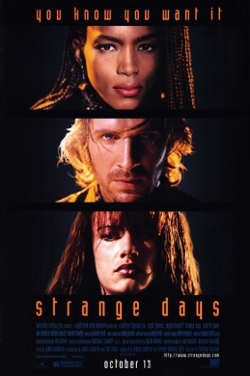You are using an out of date browser. It may not display this or other websites correctly.
You should upgrade or use an alternative browser.
You should upgrade or use an alternative browser.
Google aims to sell Glass to consumers this year for less than $1,500
- Thread starter Rohiggidy
- Start date
More options
Who Replied?They don't get it ...............
Again......who walks around with smartphone on your face....???
The implications of this shiit...is going to be ............... its just to many to name........so many scenarios of this thing ..... good and bad.......... its just....... :speechless:
Cant stop the future.
 New tech in the hands of the cac, should scare everyone.
New tech in the hands of the cac, should scare everyone.ahomeplateslugger
Superstar
god bless page and brin 

newworldafro
DeeperThanRapBiggerThanHH
posted half the article...................basically we are getting beta test perspective of how the implications of this technology..... I said on the first or second page....the technology is cool and all, but yall unwavering, "make me a robot azz" jokers seem to not understand the transformation in human interaction with this shyt sitting on tens of millions of people's foreheads...........everywhere you go..........................
Google Glass: is it a threat to our privacy?
The tech giant's 'wearable computing' project is now being tested by volunteers, meaning you might already have been surreptitiously filmed and uploaded on to Google's servers. How worried should you be?
Charles Arthur
The Guardian, Wednesday 6 March 2013 10.08 EST
If you haven't heard about the excitement around Google Glass – the head-mounted glasses that can shoot video, take pictures, and broadcast what you're seeing to the world – then here's an idea of the interest in them. Last week, someone claiming to be testing Glass for Google auctioned their $1,500 (£995) device on eBay. Bidding had reached $16,000 before eBay stopped it on the basis that the person couldn't prove they had the glasses. (They weren't due to get them until last Friday.)
Google Glass is the most hotly anticipated new arrival in "wearable computing" – which experts predict will become pervasive. In the past 50 years we have moved from "mainframe" computers that needed their own rooms to ones that fit in a pocket; any smartphone nowadays has as much raw computing power as a top-of-the-line laptop from 10 years ago.
The next stage is computers that fit on to your body, and Google's idea is that you need only speak to operate it. The videos that the company has put online – and the demonstrations by Sergey Brin, Google's co-founder, who has been driving these imaginative leaps – suggest you can whirl your child around by their arms, say: "OK, Glass, take video!" and capture the moment. (To activate Glass you need to tilt your head, or touch the side, and then say, "OK Glass, record a video" or "OK Glass take a picture".) The only other way to get that point of view is to strap a camera to your head. Brin has already appeared on stage at a TED conference wearing his Glass glasses (will we call them Glasses?) and looking vaguely like a space pirate. He has described ordinary smartphones as "emasculating" (invoking quite a lot of puzzlement and dictionary-checking: yup, it still means what you thought). And yet people are already beginning to fret about the social implications of Glass (as it's quickly becoming known). The first, and most obvious, is the question of privacy. The second is: how will we behave in groups when the distraction of the internet is only an eye movement away?
David Yee, the chief technology officer at a company called Editorially, tweeted on this point the other day: "There's a young man wearing Google Glasses at this restaurant, which, until just now, used to be my favourite spot."
Yee's worry was that the young person might be filming everything and uploading it to Google's servers (and a Google+ page). Which just feels creepy. It's not a trivial concern. Joshua Topolsky, an American technology journalist who is one of the few to have tried out Google Glass – at Google's invitation – discovered this directly. He wore them to Starbucks, accompanied by a film crew. The film crew were asked to stop filming. "But I kept the Glass's video recorder going, all the way through."
Still, you might think, where's the harm? The thing is, though: this is Google, not Fred's Amazing Spectacles Company. This is the company that has repeatedly breached the boundaries of what we think is "private". From Google Buzz (where it created a "social network" from peoples' email lists, forgetting that sometimes deadly enemies have mutual friends; it was bound over for 20 years by the US's Federal Trade Commission) and the rows over Street View pictures, to the intentional snaffling of wi-fi data while collecting those pictures (a $25,000 fine from the US Federal Communications Commission for obstructing its investigation there).
And that's before you get to criticism in Europe over its attitude to data protection (information commissioners grumbled last October that its unification of its separate privacy policies meant "uncontrolled" use of personal data without an individual's clear consent.
For Google, "privacy" means "what you've agreed to", and that is slightly different from the privacy we've become used to over time. So how comfortable – or uneasy – should we feel about the possibility that what we're doing in a public or semi-public place (or even somewhere private) might get slurped up and assimilated by Google? You can guess what would happen the first time you put on Glass: there would be a huge scroll of legal boilerplate with "Agree" at the end. And, impatient and uncaring as ever, you would click on it with little regard for what you were getting yourself, and others, in to. Can a child properly consent to filming or being filmed? Is an adult, who happens to be visible in a camera's peripheral vision in a bar, consenting? And who owns – and what happens to – that data?
Oliver Stokes, principal design innovator at PDD, which helps clients such as LG, Vodafone and Fujitsu design products, says Yee's restaurant scenario is "concerning". "The idea that you could inadvertently become part of somebody else's data collection – that could be quite alarming. And Google has become the company which knows where you are and what you're looking for. Now it's going to be able to compute what it is you're looking at."
That, he points out, could be hugely useful. "Supermarkets and packaging companies spend lots of money trying to work out which packages you look at first on a shelf. Potentially, through Google Glass, they would be capturing that data as standard. That would be quite powerful – to be able to say why people buy things."
Of course, the benefits wouldn't accrue to the wearer. Google would sell the data (suitably anonymised, of course). And your smartphone already provides a huge amount of detail about you. Song Chaoming, a researcher at Northeastern University in Boston, has been analysing mobile phone records (including which base stations the phone connects to) and has developed an algorithm that can predict – with, he says, 93% accuracy – where its owner is at any time of the day (by triangulating from the strengths of the base station signals; that's part of how your smartphone is able to show where you are on an onscreen map). He analysed the records of 50,000 people; the accuracy was never below 80%.
When you consider that Chaoming was only doing this in his spare time, and that Google has teams of people whose only task is to develop better algorithms to work out where a phone's owner is, and what they're going to do based on their past activity and searches, you realise that if you're using an Android phone, Google probably knows what you're going to do before you do.
courtdog
Drinks Blood from a Boot
If yall like this, then 720 already won 
Fortaleza in 2014 =

Fortaleza in 2014 =

posted half the article...................basically we are getting beta test perspective of how the implications of this technology..... I said on the first or second page....the technology is cool and all, but yall unwavering, "make me a robot azz" jokers seem to not understand the transformation in human interaction with this shyt sitting on tens of millions of people's foreheads...........everywhere you go..........................
exactly,the negatives are outweighing the positives by far right now.
iamstr8fire
Apex Predator
Can't wait for the price to drop to something reasonable 
Can't wait for them to be developed to the point where they look like regular glasses
My pockets will be ravaged

Can't wait for them to be developed to the point where they look like regular glasses

My pockets will be ravaged

tempestwing
Rookie
its not meant for everybody...not everybody has a smartphone
And yet, look at how much havoc smartphones have caused already.
- Joined
- Apr 30, 2012
- Messages
- 42,422
- Reputation
- 3,720
- Daps
- 152,128
- Reppin
- black love, unity, and music
this nikka is catching mad feelings
alsoat the comments
nikkas acting like this isn't gonna be the biggest revolution in tech since the smartphone.....augment reality is the future.....it'll change EVERYTHING about our lives.......lol @ nikkas acting like its useless
WTF are you talking about. You can get glasses that record your POV in HD right now! LMAO at this being considered revolutionary. And btw your cell phone can do far more than these fukking glasses can and will only cost a fraction of what these shytty glasses will cost.
RicanFury
Come Home With Me
wonder how good thw bootlegs will be 






